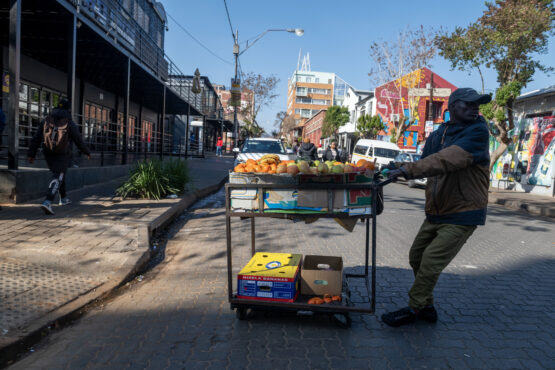South African inflation quickened to a 10-month high in July, reducing the chance of another interest-rate cut when policymakers meet next month.
Consumer prices rose 3.5% from a year earlier, compared with 3% in the prior month, Pretoria-based Statistics South Africa said in a statement on its website on Wednesday.
That matched the median estimate of 15 economists in a Bloomberg survey.
The reading is the first since the central bank’s monetary policy committee announced its preference for inflation to settle at the floor of its 3% to 6% target range and will likely convince the monetary authority to keep official interest rates on hold to support that goal, Yvonne Mhango, Africa economist for Bloomberg Economics, said before the release.
Governor Lesetja Kganyago earlier this month said he expects inflation to pick up in the coming months before returning to around 3% in the medium term.
The yield on South African 2030 government bonds was unchanged at 8.14% after the release of the data, and the rand eased 0.1% to R17.69 against the dollar by 10:15 a.m. in Johannesburg.
Forward-rate agreements are pricing in eight basis points of easing next month, and a total of 16 basis points by the end of the year. The MPC has reduced borrowing costs by 75 basis points this year to 7% to stimulate output.
South Africa’s economy now faces new pressure from a 30% tariff imposed on its exports to the US — one of the highest levies in the world. The duties are expected to mainly impact the nation’s agricultural and automotive sectors.
The main drivers of the acceleration in inflation were food items, including meat and vegetables, and non-alcoholic beverages, with prices rising 5.7%. Other contributors were utility tariffs, with the cost of water rising 12.1% and electricity 10.6%.
BLOOMBERG

